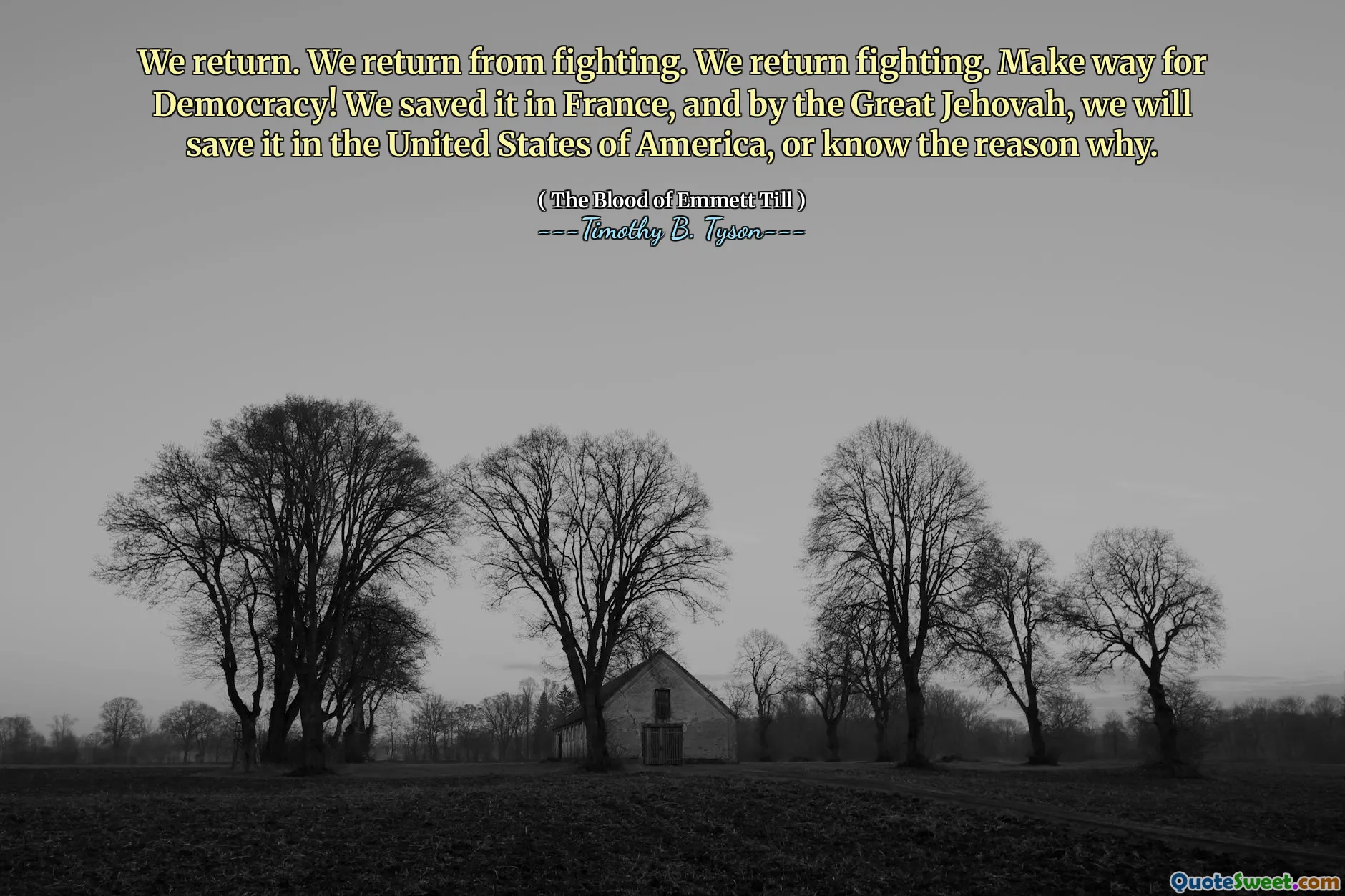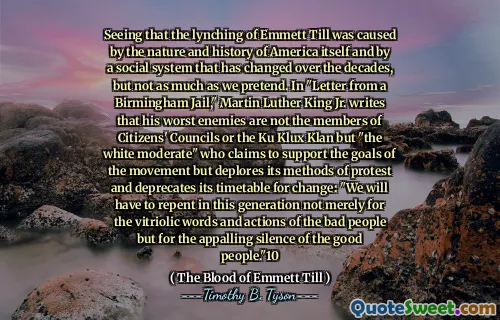
We return. We return from fighting. We return fighting. Make way for Democracy! We saved it in France, and by the Great Jehovah, we will save it in the United States of America, or know the reason why.
This quote powerfully encapsulates the enduring spirit and determination that define a struggle for democracy and justice. The repeated assertion of "We return" emphasizes resilience and a cyclical commitment to the cause, suggesting that despite challenges, the fight is ongoing and unwavering. The phrase "Make way for Democracy!" serves as a rallying cry, invoking a sense of duty and urgency. It ties a historical moment — likely the return of soldiers from France during a major conflict, most probably World War I or II — to the broader struggle for democratic values at home in the United States.
What resonates deeply here is the invocation of faith and conviction with "by the Great Jehovah," highlighting that this is not only a political or social fight but a moral and spiritual imperative. This intertwining of sacred commitment with the civic duty authenticates and humanizes the determination behind the quest for equality and justice.
Additionally, the quote frames the fight for democracy as universal and transferable; it acknowledges past victories abroad but insists that the battle within the United States is just as critical—if not more so. This directs the reader to reflect on the irony that those who fought to preserve democracy overseas may return to a country where democracy is itself contested, particularly for African Americans. Given the context of "The Blood of Emmett Till," a book that deals deeply with American racism and the civil rights struggle, the quote underscores the painful contradiction between democratic ideals and lived realities.
This passage encapsulates hope, resolve, and a call to action. It challenges readers to recognize the connections between global freedom and domestic justice, urging perseverance, unity, and vigilance in the ongoing fight against oppression.







